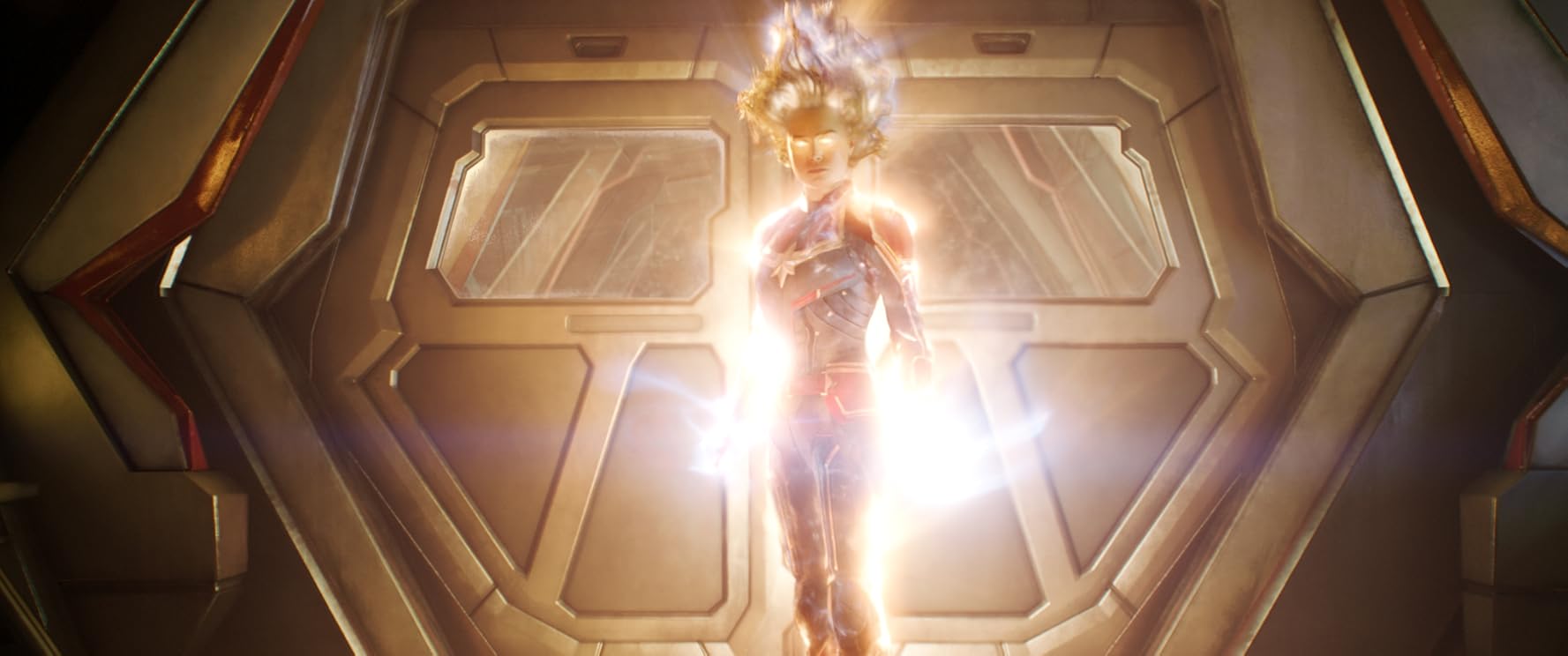As the first woman-led film from the Marvel Cinematic Universe (despite it being the twenty-first instalment of the franchise – but who’s counting?), Captain Marvel lands in cinemas already burdened with glorious purpose. Meanwhile, Rotten Tomatoes had to update its terms to ban the hordes of trolls and incels intent on review-bombing the film before it even released. What an age we live in.

Carol Danvers (a perfectly-cast Brie Larson), or Vers as she is known on Hala, is part of an elite team of Kree warriors. Tasked with extracting a Kree undercover operative before the Skrulls get to him, it is not long until the mission goes awry and Vers is taken prisoner. Under interrogation by Talos (Ben Mendelsohn), Vers recovers fragments of her past life on Earth, a life she had no memory of.
There are glimpses of a rebellious child and an unsupportive father, military training alongside her best friend, alcohol-fuelled karaoke nights, and an enigmatic mentor (Annette Bening). All are puzzle pieces to figuring out who she was, and who she is now, on her way to becoming the hero she is destined to be.

As she escapes and chases her shape-shifting captors to 1995 Los Angeles, eventually teaming up with a young Nick Fury (Samuel L. Jackson), she begins to realise that everything she thought she knew, may have been a lie. What ensues is a witty, uplifting, badass and deeply moving superhero epic.
A wonderful and unexpected aspect to Captain Marvel is Carol’s relationship with fellow pilot Maria Rambeau (played splendidly by Lashana Lynch) who has since left the air force to take care of her daughter (Akira Akbar). The tender and uplifting female friendship is what lends heart to the film. It’s also in those scenes that Larson really shines, not just in her girl-boss, warrior badass way, but equally in her character’s more vulnerable, understated moments.

It might be a little corny, the pacing might start off a little slow, the fight sequences might be a little murky, but none of this does anything to detract from what is a truly great film. And critics or viewers reading this may think that’s contradictory, or that it’s wilful blindness to Captain Marvel’s flaws. The fact is, it’s pointless and closed-minded to rate this film based solely on its cinematic merits, when its importance exists in its message.
“What happens when I’m finally set free?” Carol asks her audience. What happens when a woman stops fighting “with one hand tied behind [her] back”? A woman who’s been manipulated into confining her own abilities, into repressing her emotions to be a better soldier. Carol Danvers takes us on her journey to understanding that her power does not need to be given to her; she can empower herself.
Captain Marvel is in cinemas now, distributed by The Walt Disney Studios.
